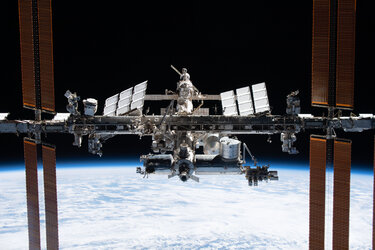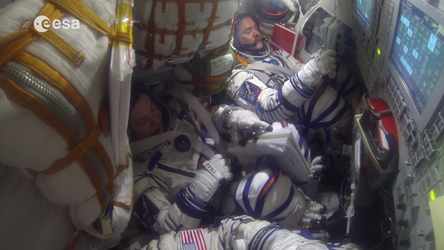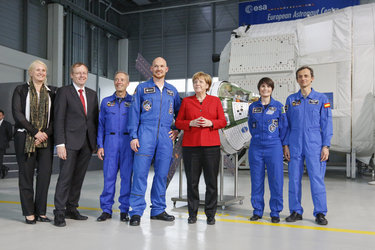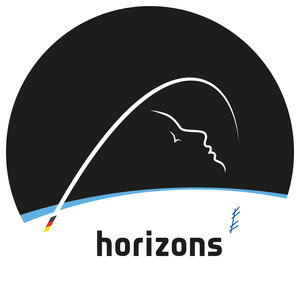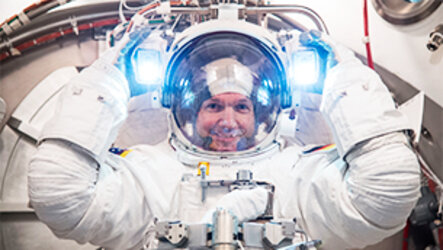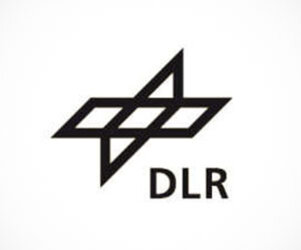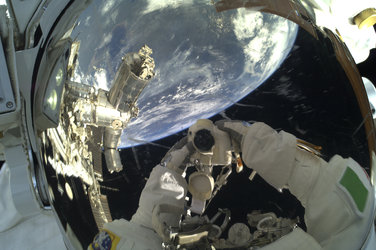Reflecting on Europe’s commanding role in space
ESA astronaut Alexander Gerst will take over the role of International Space Station commander from NASA astronaut Drew Feustel on 3 October. This marks the start of Expedition 57 and second half of Alexander’s Horizons mission.
With both Alexander and ESA astronaut Luca Parmitano set to command the International Space Station within the next 12 months, ESA astronaut Frank De Winne shares what it was like to be the first European in command.
Now head of the European Astronaut Centre in Cologne, Germany, Frank joined ESA’s astronaut corps in 2000 after serving 16 years as a pilot in the Belgian Air Force.

He flew his first mission to the International Space Station in 2002, but describes being selected as Space Station commander for Expedition 21 in 2009 as a particularly proud moment for him and ESA alike.
“Of course, you are always extremely happy when something like that happens, first of all personally, because it is a recognition of your capabilities, but also at an organisational level.
“In this case, it was recognition of the progress ESA had made over many years of investment in human spaceflight. We were the first of the international partners, outside of the USA and Russia, to take on the position and it really spoke to the strength we had developed within the European Astronaut core and the European human spaceflight community.”
Decisions around which roles each astronaut will fulfill during a mission are made in consensus by a panel of representatives from NASA, Roscosmos, ESA, JAXA and Canada, and roles are often assigned over two years in advance.
Leading a space station

While overall command of the Station lies with flight directors on the ground unless there is an emergency on board, Frank says a key role of the International Space Station commander is to foster team spirit. This involves ensuring crew members are able to perform the tasks required of them during their time in space.
“It is about making sure that every crew member is happy – that everyone understands their role and contributes to the best of their abilities so the team can deliver optimal performance for the programme,” he explains.
In many ways, Frank believes the position of Space Station commander is similar to other leadership roles on Earth and he is 100 percent confident both Alexander and Luca will do a stellar job.

“Having Luca take up the position during his mission as well says a lot about Europe’s position as a trusted partner. People can rely on us, and they do rely on us. Not only in terms of the hardware that we provide to the Space Station and now the service module for Orion, but also in the area of crew operations.
“I think that is a very good result of the investment European member states have made.”
This sentiment is echoed by Alexander who says: “I am humbled and honoured to command the International Space Station. This international sign of trust reflects Europe’s reliability in space, and was made possible by the fantastic work of my European colleagues on their previous missions.
“For me, becoming the Space Station commander for the first time is a learning experience and something that I have had to work hard for. It might be scary at the beginning, but then you grow into that position.”
Alexander will remain in the role of Space Station commander until he returns to Earth in December 2018.















 Germany
Germany
 Austria
Austria
 Belgium
Belgium
 Denmark
Denmark
 Spain
Spain
 Estonia
Estonia
 Finland
Finland
 France
France
 Greece
Greece
 Hungary
Hungary
 Ireland
Ireland
 Italy
Italy
 Luxembourg
Luxembourg
 Norway
Norway
 The Netherlands
The Netherlands
 Poland
Poland
 Portugal
Portugal
 Czechia
Czechia
 Romania
Romania
 United Kingdom
United Kingdom
 Slovenia
Slovenia
 Sweden
Sweden
 Switzerland
Switzerland











